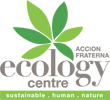1. Participatory Approach:
AF at present works directly over 40,000 farmers & farm labour under various projects.
We believe in a participatory approach, where in the people are the main actors in their development. AF works with people through their formal and informal organisations and groups. There are 800 SMGs (Sasya Mitra Groups) and 25 registered MACs and enlists their active participation in Planning, Implementation, Monitoring and Evaluation (PPIME) in all its programmes. The Participatory Approach also extends to other like minded organisations with similar objectives like research bodies, universities, CSOs, intellectuals, technical experts et with whom we wish to work with for achieving the objectives.
2. Research & Development:
The Research and Development involves working with people as well as other organisations and experts like agricultural universities and experts in various sectors. Our focus of Research & Development is on the following:
The Research and Development involves working and learning with people as well as other organisations and experts like agricultural universities and experts in various sectors. Our focus of Research & Development is on the following:
Our Research & Development is based on the farmers felt needs, problems faced by them to look for solutions.
- Develop technologies, practices to address the moisture stress caused by harsh agro-climatic conditions like low and erratic rainfall and long dry spells, short Length of Growing Period (LGP) during the crop season.
- Develop cropping and farming systems that are drought resilient, including suitable duration crops and varieties of seeds, inter/mixed cropping, crop-rotation and other low external input sustainable agronomic (LEISA) practices.
- Develop and Integrate farming systems like annual crops, tree crops, animals that are supplementary & complimentary to each other at farm household level in order to create a synergic impact.
- Develop generate community based Gold Standard (GS) Green House Gas (GHG) carbon emission reductions (carbon credits) under both Climate Mitigation and Adaptation and generate additional incomes to the farming community eg. Domestic Biogas under CDM, Low Carbon Farming under VER.
- Develop diversified additional livelihood opportunities under off-farm, non-farm, skill-based employment and individual and group based micro enterprises in order to cope with the droughts and vulnerability of rainfed farming.
- Develop village based watersheds and sustainable NRM systems and practices in order to improve micro-environment and to mitigate desertification and droughts.
3. Demonstrate on a visible scale with rural communities:
Implement and demonstrate on a visible scale with target communities the effective and viable technologies, practices, cropping system, programmes etc. The implementation is done with people and through their CBOs enlisting their participation in Planning Implementation, Monitoring and Evaluation so that a continuous learning and improvement is enabled. In the process the farmers also develop various variations and adaptations to suit to different local / farm conditions.
4. Policy Advocacy for scaling up:
The tested and proven technologies, practices, cropping systems, livelihoods etc are widely publicised and also effectively exposed on the ground to the policy makers, public, CSOs, opinion leaders, intellectuals, writers, social activists, experts etc., and build a wider public opinion in order to create a popular voice and influence the policy environment for scaling up and to be pro-people, equitable in terms of gender and pro-environment.


